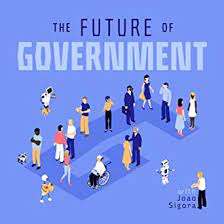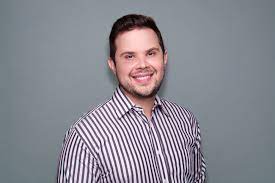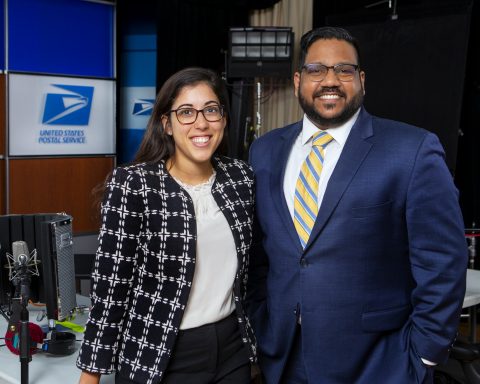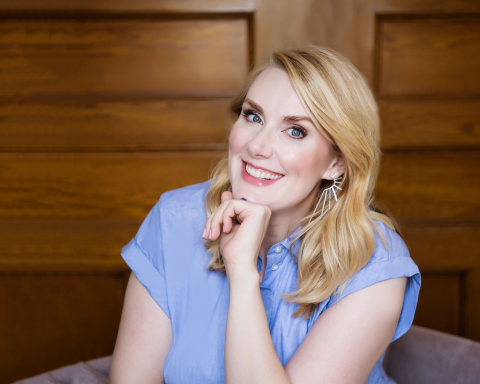Have you ever wondered what life will be like for you and your family? Does it promise riches or ruin… love or loneliness? Will you live a long life, or will it be cut short?
All of us, at some point in our lives, will ask similar questions. The million-dollar question naturally becomes:
What does the future hold?
The Future of Government podcast host Joao Sigora sees his future very optimistically. Born in the south of Brazil in a city called Apucarana in the state of Parana (which borders Argentina), Sigora enjoyed a beautiful childhood. He became interested in public policy at a very early age, which prompted him to learn to speak English in high school when he decided to study political science and international relations. He would go on to become quadrilingual, speaking Portuguese, English, Spanish, and French.
Sigora attended the Blavatnik School of Government at Oxford where he obtained his master’s degree in public policy. “The mission of my podcast is an ambitious one. My hope is to bring together doers and thinkers to discuss what lies ahead for the public sector in the 21st century,” said Sigora. “It’s not a podcast about politics; it’s about policy. I think there are many podcasts about the former and not enough about the latter.
“I’m basically trying to fill that gap. I still have a long way to go, but my vision is to help policymakers deliver better government to society. When I was doing my master’s work at Oxford, I had access to so many amazing people doing amazing stuff—like heads of state and Nobel Laureates—and I got to thinking, this information is not reaching policymakers. Their voices needed to reach a larger audience, and so the podcast was born. I wanted a way to get the information to policy makers in a bite-sized way that wasn’t by writing an article or another such medium. In my opinion, there are so many people already doing that. I wanted to be more innovative in my approach.”
Sigora is a career public servant in Brazil. He is the Coordinator of Innovation Projects at GNova—the Brazilian Government Innovation Lab. Prior to joining GNova, he served in the Brazilian Ministry of Citizenship in areas such as public policy evaluation and international cooperation. He has also been a visiting researcher at e-Governance Academy in Tallinn, Estonia.
“With my podcast, I’m trying to reach decision makers in public policy. I want to ensure that the best available information reaches them and influences their decisions. In fact, the chief information officer in Brazil listened to one of my episodes and liked it so much that he then shared it on his social media, so others would listen to it, as well. That is exactly what I want. I thought, ‘Wow, it’s working,’” Sigora stated.
“After each podcast, I always offer additional resources, such as books, other podcasts, etc. My hope is that after people listen, they will be motivated to delve deeper into more cross-cutting topics and get different perspectives on public policy. Public policy deeply affects our lives, so it’s important to learn more about what the government is doing to improve it.”
When it comes to pastimes, his favorite is traveling, and he’s visited more than 30 countries so far. He hopes to make that number 100 in the future. He believes the most amazing singer on earth right now is Adele. Sigora also loves to cook, and is known for his signature appetizers and starters. One of his favorite Brazilian desserts is the acai bowl.
The best advice that Sigora ever received was from a dean at the Blavatnik School of Government. “She said, ‘Since you will be graduating soon, you will start thinking about which companies you want to work for, but actually, the question you should be thinking about—and the only one that really matters is—who do you want to serve? Once you know the answer to that, it will be easier to find a rewarding career.’ That was great advice,” Sigora said.
One book that made an impact on Sigora’s life was Bad Blood: Secrets and Lies in a Silicon Valley Startup by John Carreyrou. “This book tells the story of Theranos, the one-time, multibillion-dollar biotech startup founded by Elizabeth Holmes. After reading it, I now take everything with a grain of salt,” he said.
“For me, the future of government is people-centered. Sometimes, it’s easy for government to become self-centered. We don’t know what society will look like in 30 years, but we know that there will always be people, and they will always need to be heard. Going forward, I would love to see more evidence-based decisions when it comes to public policy—the best available evidence out there to improve citizens lives.”
October 2020 Issue













